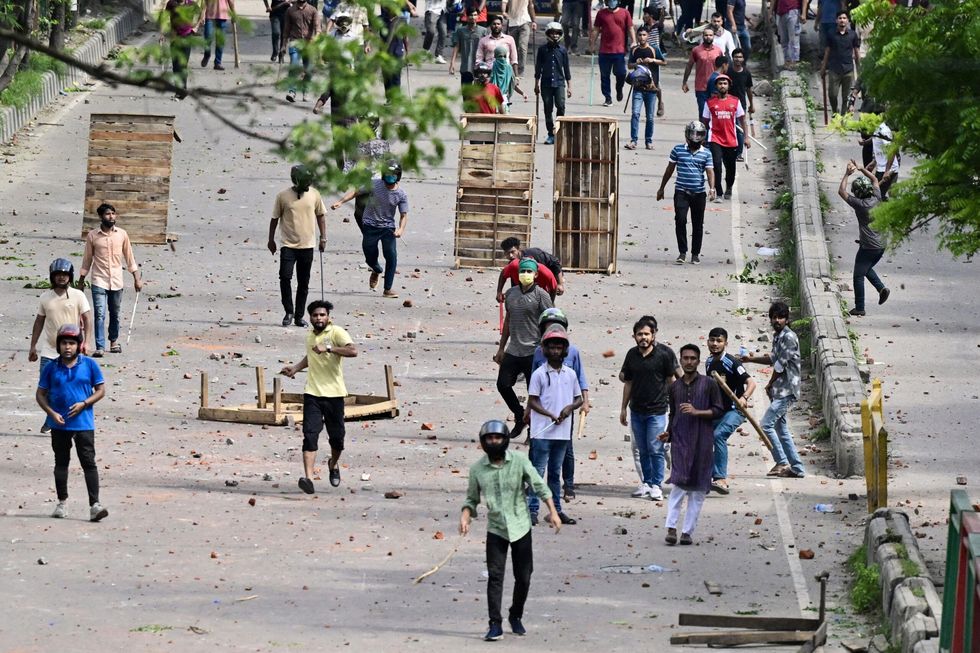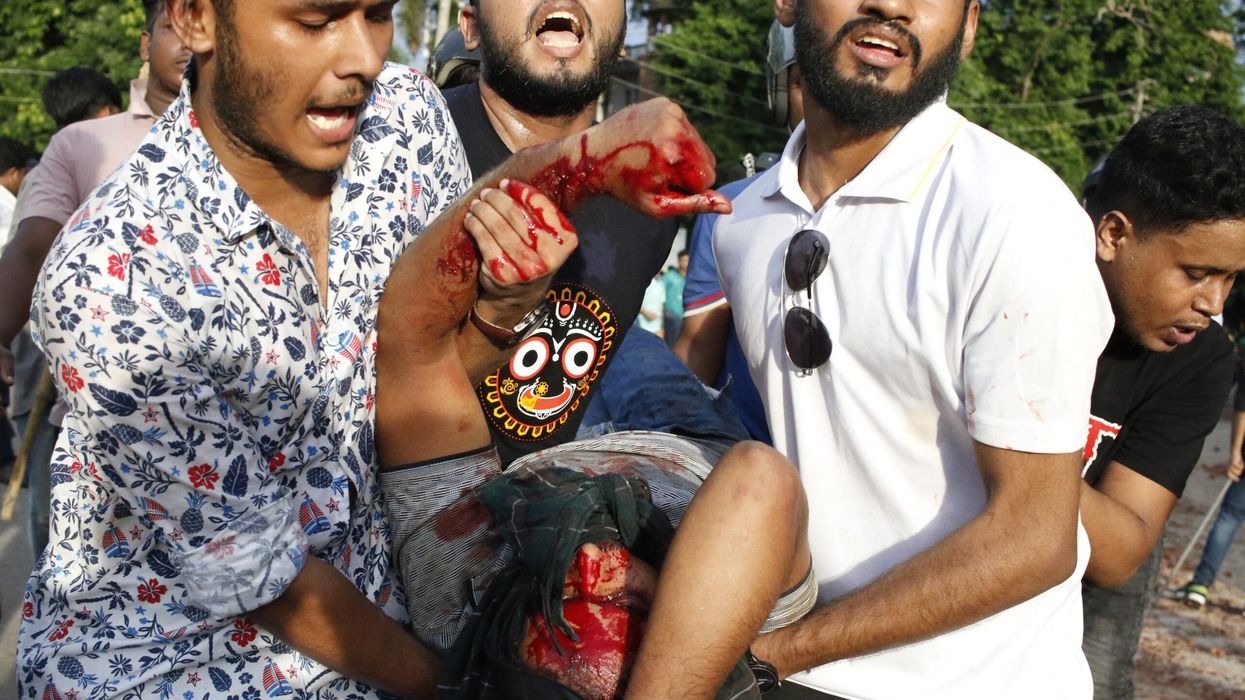BANGLADESH ordered schools and universities across the country to close indefinitely on Tuesday (16) after six students were killed in protests, prompting the mobilisation of paramilitary forces to maintain order.
All high schools, universities, and Islamic seminaries were instructed to remain shut until further notice following weeks of escalating demonstrations against civil service hiring policies.
Tuesday saw an escalation in violence as demonstrators and pro-government student groups clashed, throwing bricks and bamboo rods, while police dispersed rallies with tear gas and rubber bullets.
The protests are driven by anger over public sector job quotas, including a 30 per cent quota for family members of freedom fighters from the 1971 War of Independence, amid high unemployment.
Education ministry spokesman MA Khair said the shutdown order was issued for “the security of the students” and later extended to universities, where most protest participants are enrolled.
At least six people were killed on Tuesday as demonstrators mobilised for another day of protests in cities across the country, defying calls by prime minister Sheikh Hasina and the supreme court to return to class. Three died in Chittagong with signs of “bullet injuries,” hospital director Mohammad Taslim Uddin said, adding that another 35 were injured during clashes in the port city.
Another two died in Dhaka, where rival student groups threw bricks and blocked roads, bringing traffic in the megacity of 20 million to a halt.
Police inspector Bacchu Mia confirmed the deaths, stating that one person succumbed to head injuries, and at least 60 others were injured.
In the northern city of Rangpur, police commissioner Mohammad Moniruzzaman reported that a student was killed in clashes, without providing details.
Rangpur Medical College hospital director Yunus Ali said the “student was brought dead to the hospital by other students”.

As the day progressed and key highways were blocked by protesters, authorities deployed the paramilitary Border Guard Bangladesh (BGB) force in five major cities, including Dhaka and Chittagong. Tuesday’s clashes followed confrontations the previous day between anti-quota demonstrators and members of the ruling Awami League’s student wing, leaving more than 400 people injured in Dhaka.
“We are not here to do violence,” said one protester in Dhaka, who declined to give their name for fear of reprisal. “We want our rights. But the ruling party goons are attacking our peaceful protests.”
Stagnant job growth in Bangladesh’s private sector has made government employment, which offer regular wage hikes and other privileges, more attractive, said Mohammad Abdur Razzaque, chairman of Research and Policy Integration for Development.
Nearly 32 million young Bangladeshis are not in work or education, he added. In Bangladesh, 56 per cent of government jobs are reserved for various quotas, including 10 per cent for women, 10 per cent for people from under d e v e l o p e d districts, five per cent for indigenous communities, and one per cent for people with disabilities.
Protesters have planned more marches and rallies nationwide, vowing to continue until their demands are met, said Nahid Islam, coordinator of the anti-quota protests. The demonstrations began earlier this month when the high court ordered the government to reinstate the 30 per cent job quota.
The Supreme Court suspended the order last week for a month, but protests continued and intensified after Hasina refused to meet the students’ demands, citing ongoing proceedings in the court.
Hasina labelled those opposing the quota as “razakar” – a term used for those who allegedly collaborated with the Pakistani army during the 1971 war – prompting more protests.
Critics argue that the scheme benefits children of pro-government groups that support Hasina, who won her fourth consecutive election in January after a vot secutive election in January after a vote without genuine opposition.
Amnesty International urged Bangladesh to “immediately guarantee the safety of all peaceful protesters”. US State Department spokesman Matthew Miller denounced the “violence against peaceful protesters”, prompting a rebuke from Bangladesh’s foreign ministry (Agencies).




